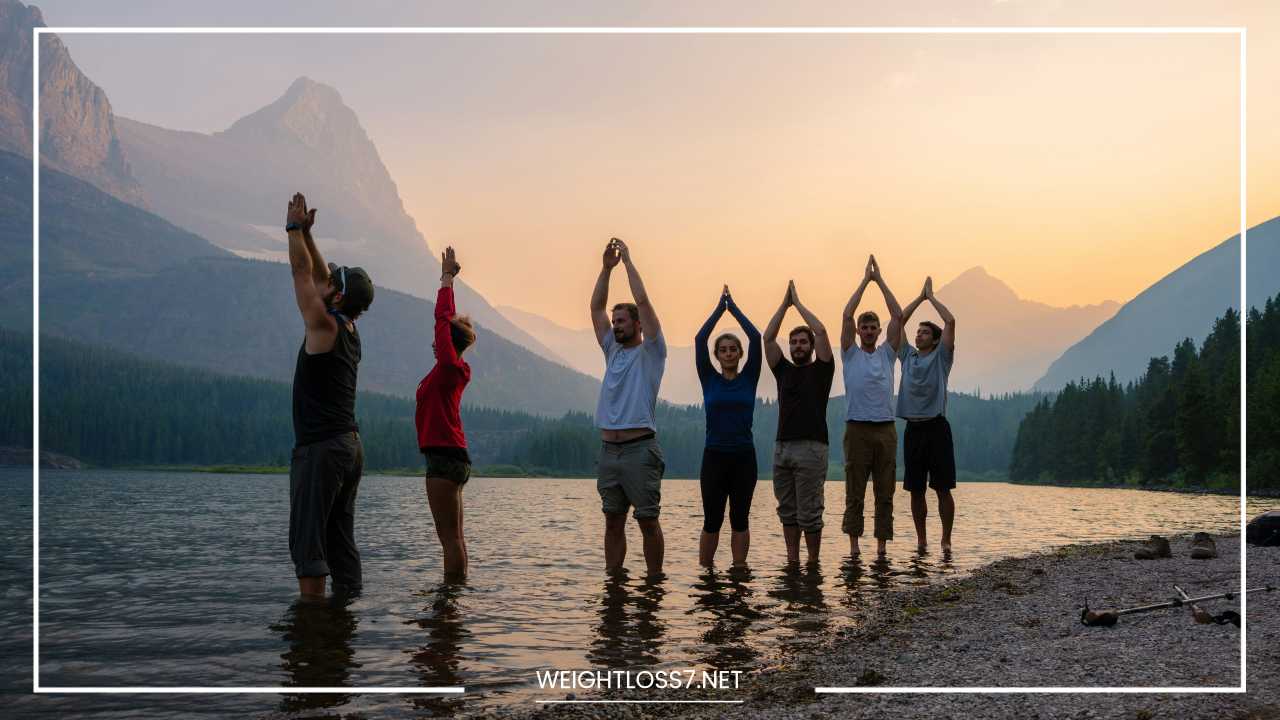Retreat: Recharge, Reconnect, Renew

Retreat
Retreat: A Strategic Escape to Reclaim Your Inner Compass
The word “retreat” might conjure images of luxurious spas or remote cabins nestled in pristine wilderness. While those experiences offer undeniable luxury, retreat is more than just a fancy vacation.
It’s a strategic withdrawal from the relentless tide of everyday life. It’s a deliberate pause, a conscious unplugging, to recharge, reconnect, and emerge feeling revitalized.
The Ever-Present Need for Retreat
We live in a world that bombards us with information and demands 24/7. Work bleeds into personal time, social media feeds overflow with curated perfection, and the constant pressure to be “on” can be relentless.
This information overload takes a heavy toll – on our mental well-being, creativity, and even physical health. Chronic stress, a byproduct of our hyper-stimulated lives, weakens our immune system, increases blood pressure, and contributes to anxiety and depression.
The Power of a Strategic Pause
Think of a retreat as a pit stop on a marathon journey. It’s an opportunity to:
- Reduce Stress: A retreat provides a dedicated space to step away from the stressors and practice relaxation techniques like meditation, yoga, or simply spending time in nature. Studies show these practices significantly lower stress hormones and improve overall well-being.
- Gain Clarity: Feeling overwhelmed and lost in the daily grind? A retreat allows for introspection – a chance to reflect on what truly matters, to sift through the noise and prioritize your goals. This clarity can lead to improved decision-making and a renewed sense of purpose.
- Boost Creativity: The constant stimulation of daily life can stifle creativity. A retreat, with its focus on relaxation and exploration, provides fertile ground for new ideas to blossom. Immersing yourself in a different environment, engaging in stimulating activities, and disconnecting from technology can all spark the creative flame.
- Reconnect with Yourself: Often, the busyness of life leaves us feeling disconnected from our authentic selves. A retreat offers a chance to reconnect with your inner voice through journaling, artistic expression, or simply spending time in solitude. This reconnection empowers you to make choices aligned with your values and aspirations.
- Deepen Relationships: Spending quality time with loved ones outside the usual routines can strengthen bonds and create lasting memories. Consider a couples retreat for an opportunity to reconnect on a deeper level, free from distractions. Plan a family retreat filled with shared experiences that will become cherished stories for years to come.
Crafting a Retreat Tailored to You
The beauty of a retreat lies in its adaptability. It doesn’t have to be a week-long escape to a secluded island. A strategic retreat can be as simple as a few stolen hours dedicated to self-care. Here’s how you can craft a retreat perfectly suited to your needs and desires:
Setting the Stage for Renewal:
- Location: Where does your soul yearn for escape? Will you seek solace in a quiet cabin nestled in the mountains, a beachside resort with soothing waves, or simply create a dedicated space within your own home? Consider the type of environment that best fosters relaxation and renewal for you.
- Duration: Is a weekend getaway all you need? Can you commit to a longer stay? Choose a timeframe that allows you to truly disconnect and achieve your desired outcomes. Consider a “micro-retreat” of just a few hours to disconnect and recharge, or a longer retreat for a more immersive experience.
Activities for Self-Discovery and Connection:
- Solo Pursuits: If you need time for introspection and self-discovery, consider activities like meditation, journaling, yoga, or reading. Engage in a guided meditation session to quiet your mind, or spend time journaling your thoughts, fears, and aspirations.
- Connection-Building: Retreats can also be fantastic opportunities to deepen relationships with loved ones. Dedicate time to meaningful conversations, engage in outdoor adventures together, or explore a new creative activity as a group. Consider taking a cooking class together or learning a new skill like pottery or painting.
Exploring Different Retreat Options:
There’s a retreat waiting to cater to your specific needs and interests. Here are just a few examples:
- Wellness Retreat: Focusing on holistic well-being through yoga, meditation, healthy eating, and spa treatments. This is a great option for those seeking to reduce stress, improve physical health, and cultivate inner peace.
- Digital Detox Retreat: Disconnecting from technology to reconnect with yourself and the world around you. Perfect for those who need a break from the constant notifications and information overload.
- Adventure Retreat: Hiking, camping, white-water rafting, or any activity that gets your adrenaline pumping and connects you with nature. This is a great option for those seeking a challenge and a physical escape.
- Silent Retreat: A space for introspection and mindfulness through periods of silence and meditation Ideal for those seeking profound self-discovery, silent retreats offer a powerful opportunity to quiet the mind and connect with your inner wisdom.
- Writer’s Retreat: Immerse yourself in a dedicated environment with workshops and prompts to jumpstart your creativity. Whether you’re a seasoned novelist or a budding blogger, a writer’s retreat can provide the inspiration and focus to take your writing to the next level.
- Artist’s Retreat: Similar to a writer’s retreat, an artist’s retreat provides a dedicated space and resources for artists of all disciplines to explore their creativity. Workshops, critiques, and collaborative projects can help artists develop their skills and find new inspiration.
- Spiritual Retreat: Many religions and spiritual traditions offer retreats focused on prayer, meditation, and connection with a higher power. These retreats can be deeply transformative experiences for those seeking spiritual renewal.
- Volunteer Retreat: Combine self-discovery with the act of giving back through a volunteer retreat. Contribute your skills and time to a worthy cause while experiencing a different culture and perspective.
Planning for a Successful Retreat:
1. Set Intentions:
- What do you hope to achieve through your retreat? Identify specific goals, whether it’s reducing stress, boosting creativity, reconnecting with a loved one, or simply finding a sense of inner peace. Having clear intentions allows you to tailor your retreat experience for maximum impact.
2. Plan (a little):
- While spontaneity can be refreshing, some level of planning is key. Determine your budget, choose activities that align with your goals, and pack accordingly. Research retreat options or create a detailed plan for your DIY retreat at home.
3. Embrace the “Unplug”:
- Disconnecting from technology is a powerful way to truly de-stress and reconnect with yourself. Leave your phone in your room, turn off email notifications, and resist the urge to check social media.
4. Be Present:
- Fully immerse yourself in the experience. Engage with your surroundings, savor the peace and quiet, and allow yourself to be present in the moment. Disconnect from distractions and appreciate the sights, sounds, and smells of your chosen environment.
5. Re-entry:
- Coming back to reality after a transformative retreat can be jarring. Plan for a smooth transition back into your daily routine. Ease back into work with a lighter schedule, schedule enjoyable activities upon your return, and reflect on your retreat experiences in a journal. This will help you integrate the insights and renewal gained during your retreat into your daily life.
Beyond the Retreat: Cultivating Everyday Renewal
A retreat is not just a temporary escape. It’s an investment in your overall well-being. By strategically carving out time for renewal, you can return to your life feeling energized, focused, and ready to tackle the challenges that come your way.
The key lies in not letting the benefits fade away once your retreat ends. Here are some ways to cultivate a sense of renewal in your everyday life:
- Schedule Regular Self-Care Practices: Integrate activities like meditation, yoga, or spending time in nature into your weekly routine. Even 15 minutes a day can make a world of difference.
- Set Boundaries: Learn to say no and limit your commitments. Prioritize your physical and mental well-being by setting boundaries that protect your time and energy.
- Embrace Mindfulness: Practice mindfulness throughout your day by focusing on the present moment. This can be as simple as paying attention to your breath while walking or savoring the taste of your food.
- Embrace Disconnection: Establish tech-free zones in your home and schedule regular digital detox breaks.
- Seek Inspiration Regularly: Expose yourself to new ideas and experiences through books, art, music, or nature walks. This will keep your mind stimulated and creativity flowing.
Remember: Your retreat doesn’t have to be a once-a-year event. By incorporating practices for renewal into your everyday life, you can create a sustainable rhythm of work, rest, and rejuvenation. You are the architect of your well-being. Take charge, carve out space for renewal, and embark on a lifelong journey of self-discovery and growth.
The Ripple Effect: Sharing Your Retreat Experience
A retreat can be a deeply personal experience, a chance to reconnect with yourself and explore your inner world. However, the benefits of retreat extend beyond the individual.
Sharing your retreat experience can inspire others to prioritize their well-being and create a ripple effect of positive change. Here are some ways to share your retreat experience and inspire others:
- Write a Blog Post or Journal Entry: Capture your thoughts, feelings, and insights gained during your retreat. Share the lessons learned, the challenges overcome, and the sense of renewal you experienced. Your story might be the nudge someone needs to embark on their own retreat journey.
- Host a Retreat-Themed Gathering: Did you discover a new skill or activity during your retreat? Share your newfound knowledge by hosting a gathering focused on that activity. For example, if you learned meditation techniques, lead a guided meditation session for friends and family.
- Start a Conversation: Retreats can spark important conversations about self-care, stress management, and overall well-being. Talk to your loved ones about your retreat experience and encourage them to explore ways to prioritize their own well-being.
- Advocate for Retreat Opportunities: Does your workplace offer wellness programs or incentives for employee well-being? Share your positive retreat experience and advocate for the inclusion of retreat opportunities within your company culture.
Final Word: A Journey of Renewal
Retreat is more than just a vacation; it’s a strategic investment in your well-being. By carving out time for renewal, you can return to your life feeling recharged, refocused, and ready to navigate the challenges and opportunities that lie ahead. Remember, retreat is not a destination, but rather a journey of self-discovery and rejuvenation.
As the renowned author and speaker Wayne Dyer once said, “The greatest journey of discovery is not in seeking new landscapes, but in having new eyes.” Embrace the power of retreat, embark on your own journey of discovery, and return with a renewed perspective and a spirit ready to embrace all that life has to offer.

















